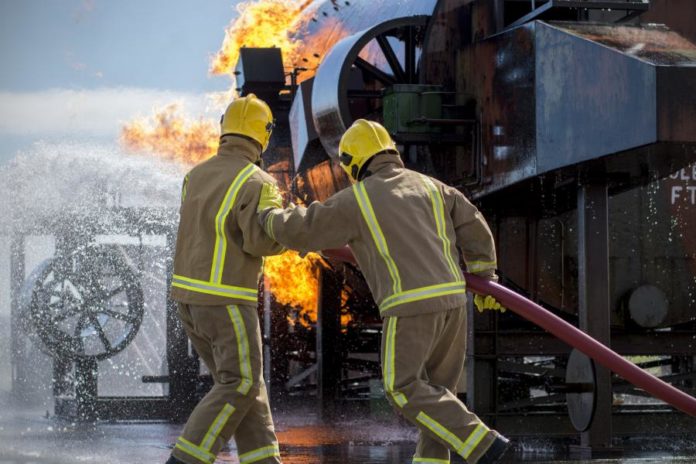Firefighter posts have increased by just 318 this year, the Fire Brigades Union (FBU) has learned.
This year’s 1% increase means that there are still nearly 11,500 fewer UK firefighters than in 2010.
The union is urgently calling for the government to fund firefighter recruitment and reverse a decade of severe cuts to fire and rescue services.
Nationally, there has been a 19% cut in frontline firefighters since the Tories took office, cutting firefighter numbers in every brigade in the UK. Overall spending on UK fire and rescue services has fallen by 38% since 2005.
In England, firefighter numbers have been cut by 21% since 2010, despite a 1% increase this year, with recruitment concentrated in London and the North West. Central government funding for English fire and rescue services has been cut by 30% in cash terms between 2013 and 2020.
Matt Wrack, FBU general secretary, said:
“This shameless government is doing nothing to ease the pressure on overstretched and underpaid firefighters, all while making dubious claims of spending elsewhere. Fire and rescue services are in crisis after years of brutal cuts – and this year’s measly increase in posts is wholly insufficient to plug the gaps.
“We cannot allow firefighters’ life-saving work to go unrecognised. The Chancellor must fund firefighter recruitment and end the years of real-term pay cuts for firefighters. Our communities need more firefighters – and the government needs to reflect the work they do in their paycheques.”
The news comes as fires are increasing, with a 10% spike in England and an 8% spike in Northern Ireland over the last year, after wildfires tore across the country. The latest data for Wales saw a 3% increase in fires, while Scotland saw a 4% decline in fires.
41,771 of the 45,653 people rescued by UK firefighters last year were from non-fire incidents, such as flooding, road traffic collisions, height rescues, lift rescues, and hazardous chemical spillages.
Matt Wrack, FBU general secretary, continued:
“The Whaley Bridge dam collapse saw fire and rescue services stretched to the limit. Firefighters were pulled from every brigade in the region, and from as far as Chichester and London.
“If this government is serious about tackling the climate emergency, it needs to invest in our frontline defences – and it is firefighters who are tackling wildfires and rescuing people stranded in flooding. Whaley Bridge will not be the last extreme weather event to stretch fire and rescue resources.”
This year is the only net increase in UK firefighter numbers in a decade. Around 8,000 of the jobs cut since 2010 are wholetime firefighters, while 3,000 retained (on-call) firefighters have also been cut. Around a quarter of fire control staff, who take the emergency calls and mobilise fire crews, have been lost.







